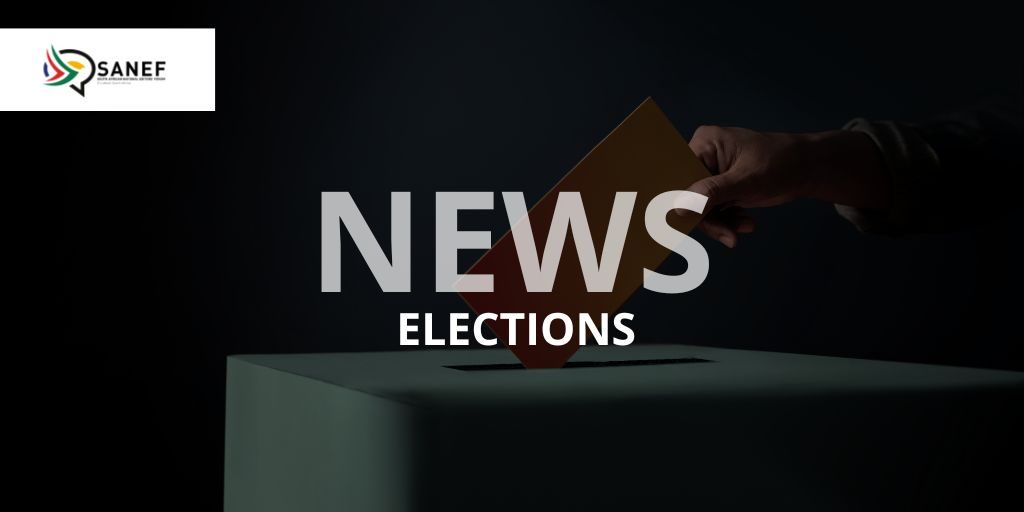Statement of Commitment on Media Freedom and the Protection of Journalists
SOUTH AFRICAN NATIONAL EDITORS’ FORUM – GENERAL ELECTIONS 2024
INTRODUCTION
- This Statement of Commitment on Media Freedom and the Protection of Journalists (“Statement of Commitment”), developed by the South African National Editors’ Forum, expands on item 8 of the Electoral Code of Conduct on the role of the media.[1] Specifically, this document reflects the expectations on all political parties, candidates and independent candidates in their engagements with the media in the upcoming General Elections in South Africa. The commitments below should be read in line with inter alia the following frameworks:
- the Constitution of the Republic of South Africa, 1996 – in particular the founding values of transparency, responsiveness and openness; section 16 guaranteeing all persons the right to free speech and press freedom; and section 19 guaranteeing all citizens the right to free, fair and regular elections;
- the Electoral Code of Conduct as contained in Schedule 2 of the Electoral Act – in particular item 8 on the role of the media, together with items 3 (compliance with the Code and electoral laws), item 4 (public commitment), item 6 (role of women) and item 9 (prohibited conduct); and
- regional and international laws and standards that the country has committed to including the Principles and Guidelines for the Use of Digital and Social Media in Elections in Africa,[2] the Declaration of Principles on Freedom of Expression and Access to Information in Africa[3] and the Guidelines on Access to Information and Elections in Africa.[4]
- This Statement of Commitment is fundamentally underpinned in recognition of the indispensable role that the media plays in the conduct of free, fair and credible elections. For this, this require an enabling environment where the media can perform its constitutionally-mandated duties and functions in the public interest without fear, threat or undue restriction. Fostering such an environment is critical to the promotion of an effective and independent media landscape committed to the highest levels of professional and ethical journalistic standards. As the Constitutional Court has previously reflected:[5]
“By its very nature, the proper exercise of the right to vote is largely dependent on information … There is wide coverage of electoral campaigns on all media platforms and they are fundamentally about sharing information so that the electorate know more about those public office seekers.
[1] The Electoral Code of Conduct is contained in Schedule 2 of the Electoral Act 73 of 1998, accessible here. Item 8 of the Electoral Code provides as follows:
[2] Association of African Election Authorities, 2024, accessible here.
[3] African Commission on Human and Peoples’ Rights (“ACHPR”), 2019, accessible here.
[4] ACHPR, 2017, accessible here.
[5] My Vote Counts NPC v Minister of Justice and Correctional Services [2018] ZACC 17 at paras 37-38 (emp
That information is generally calculated to have voters believe that the candidate it relates to can be trusted and deserves their support because she is best placed to serve citizens in the public office being campaigned for. It seeks to demonstrate their abhorrence of corruption and all facets of unethical conduct. It is also meant to assure the public of their commitment to our constitutional values and good governance. The centrality of information to this process cannot be over-emphasised.”
- Accordingly, SANEF calls upon all political parties, candidates and independent candidates to endorse and promote this Statement of Commitment as a declaration of their commitment to our country’s constitutional democracy.
FACILITATION OF ACCESS TO ELECTION-RELATED INFORMATION
- Subject to the provisions of the Promotion of Access to Information Act 2 of 2000 (“PAIA”), all registered parties, candidates and independent candidates commit to-
- respecting and fulfilling the right of access to information as provided for in section 32 of the Constitution, PAIA and other relevant laws;
- responding to any requests for information from the media in a timeous manner, without delay or undue formality, and to providing such information in an electronic format where practicable;
- providing accurate and credible information to the media that is not misleading in any way;
- facilitating access to any election-related meeting, rally or similar gathering, and not banning or hampering any media representative from attending;
- not interfering with any live townhall broadcasts and debates; and
- not tampering with, damaging or confiscating any media equipment including cellular phones or cameras.
FOSTERING AN ENABLING ENVIRONMENT: PROTECTION OF THE MEDIA[1]
- All registered parties, candidates and independent candidates commit to –
- not engaging in any act of intimidation, harassment, harm or other unlawful conduct against any media representative;
- not using any language, insinuation or conduct that may provoke, encourage or incite office-bearers, representatives, members or supporters to intimidate, harass or harm any media representative, either on- or offline;
- not supporting or condoning any intimidation, harassment or harm committed against any media representative;
- not supporting or condoning any abusive acts against any media representative through any form of communication, including anonymous calls or online threats;
- not singling out any media representative at any meeting, rally or similar gathering in a manner that may lead to intimidation, harassment or harmful conduct against that person;
- not revealing any personal information or details about any media representative, such as their home address or personal contact details, that may result in them being subjected to intimidation, harassment or harm;
[1] For purposes of this document, the terms “harassment” and harm” have the same meanings as defined in section 1 of the Protection from Harassment Act 17 of 2011.
- not supporting or condoning any act of cybercrime[1] against any media organisation or representative, including intercepting private communications, cyberbullying, cyberstalking or through coordinated inauthentic behaviour such as botnets;
- not making any false or defamatory allegations of bias or untoward behaviour against any media organisation or representative unless there is credible documentary evidence provided to support such claims;
- not attempting to bribe or induce any unlawful conduct from any media representative or abusing a position of power to attempt to influence their conduct;
- not instituting frivolous litigation or other legal proceedings against any media body or media representative;
- seeking conciliatory measures in any dispute against a media organisation or representative through engagement with editors or through complaints processes of media regulatory bodies;[2] and
- fully cooperating in any investigation into any unlawful act committed against any media representative.
ENDORSEMENT OF THE STATEMENT OF COMMITMENT
- All registered parties, candidates and independent candidates commit to-
- endorsing, complying with and promoting this Statement of Commitment in good faith and in a manner that gives meaningful effect to these provisions;
- informing all political office-bearers, representatives, members and supporters of this Statement of Commitment and assisting them in understanding its importance;
- instructing all political office-bearers, representatives, members and supporters to comply fully with this Statement of Commitment;
- publicly condemning any non-compliance with this Statement of Commitment such as any act of intimidation, harassment, harm or other unlawful conduct that undermines the media organisation or representative;
- establishing measures to address any non-compliance with this Statement of Commitment by any political office-bearer, representative, member or supporter;
- providing for special measures to protect the rights of female journalists and other marginalised groups who may face discrimination to enable them to perform their functions freely and without hindrance; and
- publicly affirming the important role of the media in informing the public and enabling the electorate to make considered decisions, as well as supporting the media to the widest extent possible to perform its constitutionally-mandated functions in the public interest.
[Ends.]
[1] For reference, see Chapter 2 of the Cybercrimes Act 19 of 2020 regarding the prohibited acts of cybercrimes.
[2] In this regard, the Broadcasting Complaints Commission of South Africa has jurisdiction over the broadcast media and the Press Council of South Africa over print and online media.
Please find the link to the statement here.




